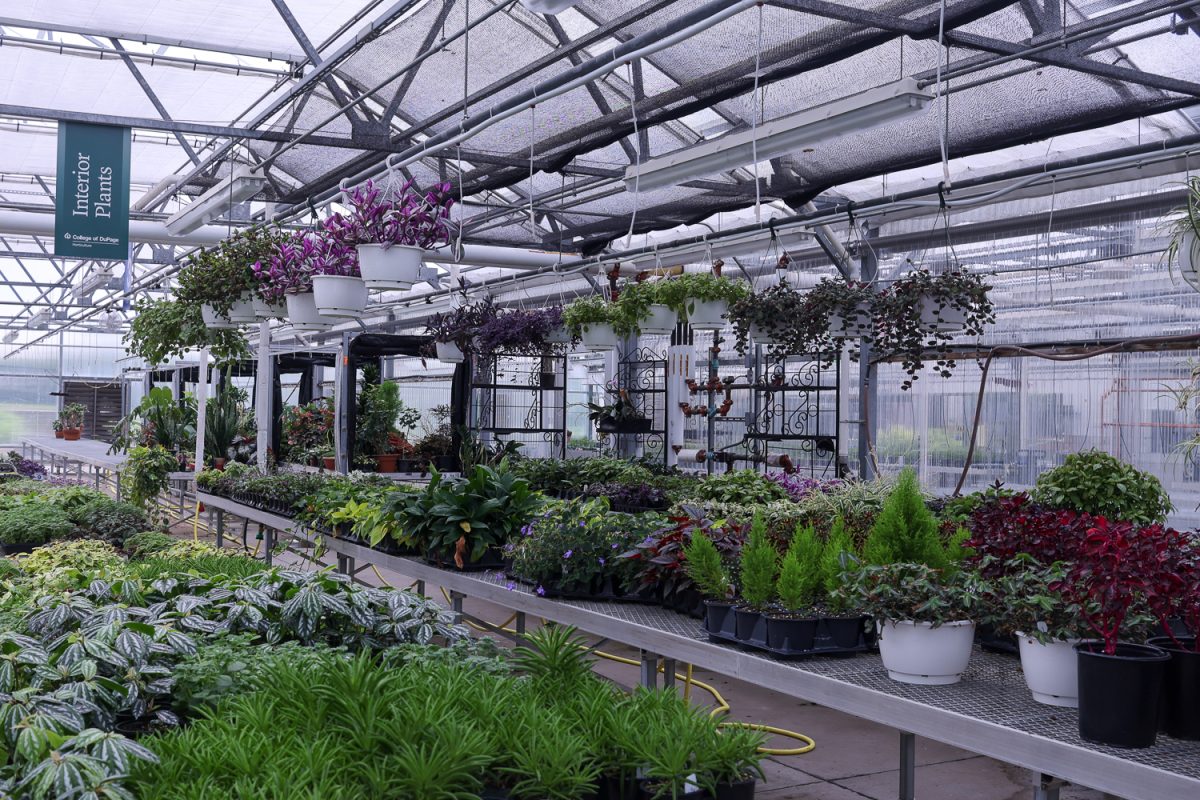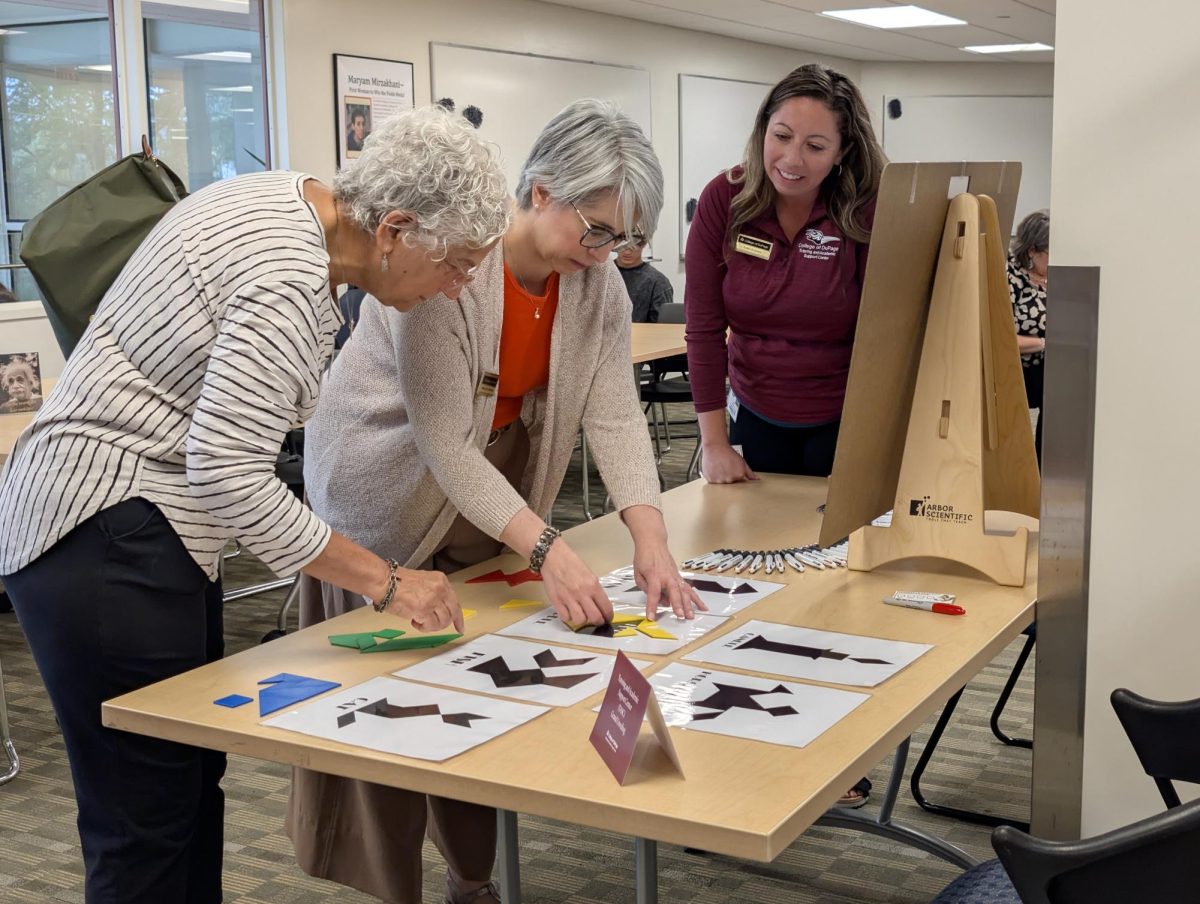Beginning in fall 2025, College of DuPage (COD) will launch two horticultural therapy certificate programs, making it one of only nine colleges nationwide – and the only college in the Midwest – to offer accredited training in the field.
“COD has the largest horticulture program in Illinois and one of the larger programs in the United States,” said Brian Clement, horticulture program chair. “With the number of classes we offer, we were well set up to add this program. Students were asking for it, and the Midwest didn’t have accredited options. It made sense for us to step in.”
The new programs include a foundational certificate, totaling 12 credit hours, and an advanced certificate, totaling 43 credit hours, for students seeking clinical training. The advanced track incorporates psychology and human services courses in addition to horticulture, and both certificates include a 480-hour internship with local partners. Students also have the option to complete coursework online, Clement said. Anyone, with or without prior experience, can enroll to explore the field. To become a registered horticultural therapist, however, students must earn a bachelor’s degree in a related field in addition to completing COD’s accredited coursework.
According to the American Horticulture Therapy Association (AHTA), horticulture therapy is the use of plants and plant-based activities for human healing and rehabilitation.
“The profession really started out more in a clinical setting,” adjunct faculty and horticulture therapist Kelly Warnick said. “Most of the time, a horticultural therapist works on a multidisciplinary team, offering programs that complement a patient’s treatment plan. We’re also seeing a growing interest in plant-based wellness outside clinical settings, including schools and community centers. Even in these non-clinical environments, the focus remains on improving overall health and quality of life, and the benefits are significant.”
Unlike traditional horticulture, which focuses on growing and maintaining plants, horticultural therapy emphasizes the human-plant connection, she said. Practitioners use activities such as gardening, propagation, and caring for healing gardens to improve physical, emotional, cognitive and social health outcomes.
“The benefits are more and more these days,” Warnick said. “We are strongly evidence-based in our work. We know that just being immersed in a plant-rich setting increases mood, decreases anxiety, lowers blood pressure. Most plant immersion is really going to boost immune system function as well.”
Demand for practitioners is expected to grow within the next decade, particularly for treating the elderly, she said. According to the U.S. Bureau of Labor Statistics, the median annual salary for therapists is about $60,280, with job growth projected at 4% from 2023 to 2033, which is about average.
“We know that soon, older adults are going to outnumber children for the first time in US history,” Warnick said. “As the older adult population grows, there’s a need for restorative health practices like horticultural therapy to support quality of life. Many assisted living communities are seeking these services, and our graduates are prepared to meet that demand.”
Warnick also leads the AHTA Growing Impact Youth Campaign, which supports the mental wellness of young children by connecting them to the environment and nature around them.
Students working towards the certificates also complete coursework for younger children to be implemented in local schools.
“There is so much anxiety and depression among young people,” Warnick said. “We know horticulture can transform these challenges into a therapeutic pathway that boosts health and helps students cope with an uncertain time, whether it’s the climate crisis, AI, or everyday stress. We’re also seeing the field move into schools as a tool during class to support student wellness. The stronger someone’s background is in horticulture, the more depth their programming can have, and the more we can help with that.”
While the word “therapy” often brings to mind clinical settings, Warnick said horticultural therapy takes a more holistic approach.
“Therapy can just be working on making sure that your health is in balance in terms of the physical, the emotional, the cognitive and the social,” she said.
As the programs take root at COD, faculty hope to not only prepare students for careers but also strengthen the field of horticultural therapy in the Midwest.
“Through our DNA, we have an innate connection to plants,” Warnick said. “That connection makes horticultural therapy such a powerful tool to improve health and quality of life. With these new programs, COD is helping students turn that connection into a career.”
To learn more about COD’s horticulture program, visit https://www.cod.edu/academics/programs/horticulture/ or contact Brian Clement at [email protected].








